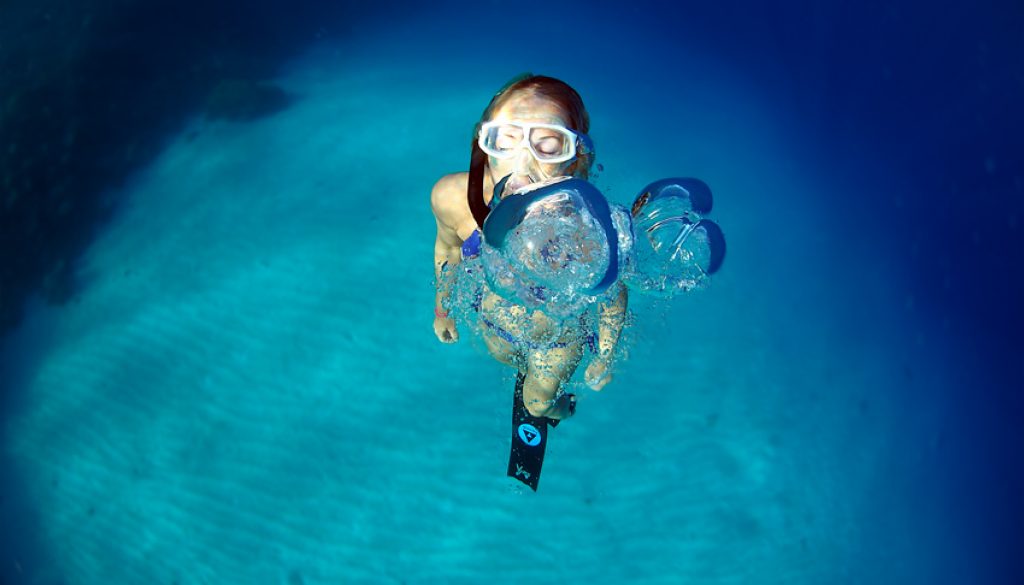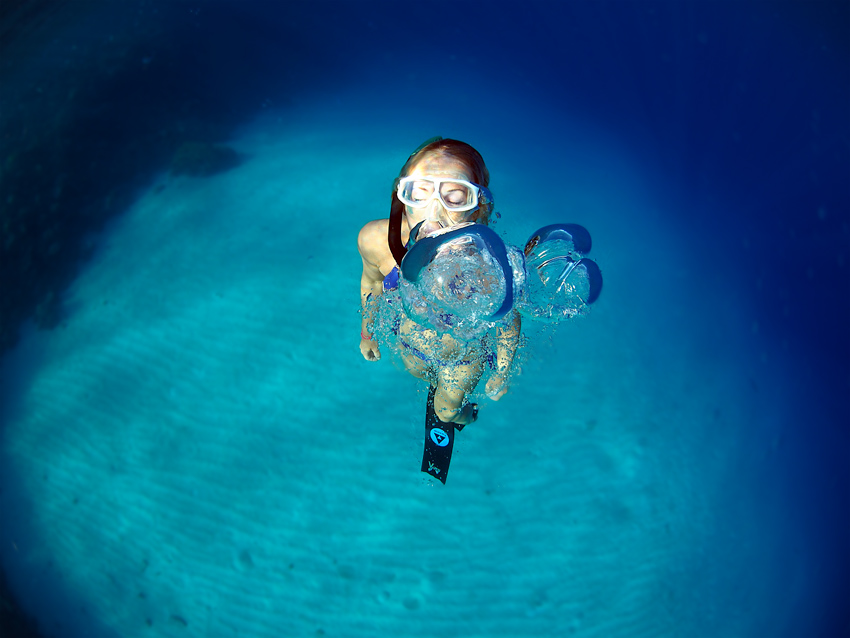How one thought can change your life and your freediving

One thought is sometimes all it takes. One thought can change everything.
I heard one of those thoughts a few days ago again during training. I was freediving down towards the deep blue, freefalling into the void, eyes closed. I was ok. But then I heard it. I never know where it starts; from the discomfort in the mind or emotion of expected weakness in the body from being sick, but it’s there. The thought saying “I don’t want to, I can’t do it”.
I can’t pretend I didn’t hear it. My body cringes with the conflict, and without me making a conscious decision to abort the dive and turn around, my hand automatically reaches out to the dive-line, stops the freefall and within a second I have turned, swimming up to the surface again without reaching my target. Disappointment washes over me. It’s happened over and over again the last days, having no respect at all for my training schedule.
I’m usually mentally strong. But the connection between the mind and the body is stronger. My body feels weakened after a bout of antibiotics and fever. My mind can’t override the body. Maybe for the better this time. I’m not a robot athlete. I’m human.
But let’s come back to the thought.
A thought is just a combination of words.
Such a small thing can have such a great influence. If it can stop me from freediving deeper, what else can it stop, or start?
Thoughts are powerful.
How well do you know your thoughts?
How well do you know yourself?
A quick thought about a decision can change your life. Thoughts with judgement or preconceptions will change your attitude and the way you look at things. Thoughts of expectations can give you hope, or take away all your willpower in a second. It’s through your thoughts you can lie to yourself, or make up excuses.
In ”normal” life you might not listen or pretend you never heard certain thoughts. In freediving you can’t. You are alone with yourself and your thoughts. A big part of freediving is about thoughts. For me, freediving is an inner dive as much as it is a deep dive. It’s about how my thoughts directly affect my body, and my dive. A thought can bring on an immediate automatic reaction from the body. Another unfinished dive. Maybe another excuse; equalization problem, relaxation problem, fear, early contractions, bad feeling, wrong mindset. Most of these problems start in the mind. In one thought.
The fact is that most of us have much less control over thoughts and emotions than we would like.
How can we handle thoughts better? The only way to get better at something is to practice it. If you want to get better at relaxation – do relaxation exercises. If you want to get better at handling stress – practice handling stress. If you want to get better at handling thoughts and get a stronger mind – train your mind.
6 Tips on how to train your mind (for freediving) and life.
- Start listening to your thoughts. Become aware of what they are saying, how they affect you, the way you look at the world and yourself.
- Accept the thoughts. You don’t have to like them. Just accept what you “heard” without judging it as good or bad. Don’t beat yourself up. Thoughts are just made up from words. They are made up in your head. You don’t need to take the thought for a fact.
- Make a plan for what you want to think about during a dive. What do you think about while breathing up? What do you think about in the duck dive? What do you think about during the free fall? Is it ”forced” thinking using precious oxygen? How relaxed are you inside your head?
- Find the difference between the “thinking mindset” and “observing mindset”. The thinking part is what is babbling in your mind, judging and talking to you. The observing mindset can be present, just observing without judgment.
- Practice meditation or mindfulness. Being able to create a single pointed focus can calm your mind and make thoughts more clear. There’s plenty of information to google about mindfulness and meditation. I’ll probably write more on it later.
- Remember mental training is just like physical training. You need to repeat it regularly for it to have any effect.
A note and warning on “positive thinking” and ”attitude”. It’s a very short term and superficial technique to try to stop thinking negative thoughts and replace them with positive thoughts. The more you try to push away negative thoughts, the stronger they will come back at you. Acceptance is the key here. Cultivating a positive attitude makes a world of difference in the outlook on life. An attitude reaches deeper into belief systems and values than just thoughts.
Photo by Aron Arngrimsson


